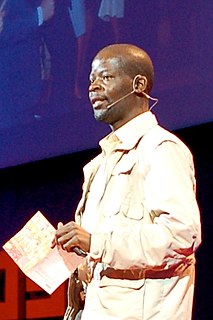A Quote by Ann Northrop
I think racism is a bottom-line AIDS issue. And I think homophobia is a bottom-line AIDS issue, and sexism and class issues and all of this. I think that we are not going to solve the AIDS epidemic unless we deal with these issues, and vice versa.
Related Quotes
The AIDS disease is caused by a virus, but the AIDS epidemic is not. The AIDS epidemic is fueled by stigma, by hate, by misinformation, by ignorance, by indifference. Science has accomplished miracles over the past 20 years, and science can now end this disease - but it cannot end the epidemic. We need more than medicine. We can do something about these things. We need to speak out about the changes we need to make in our society.
I think I understand the relationships between different people within the company: people who are straightforward employees, people who can impact the bottom line, and people who share in the bottom line. I don't think you can understand inequality in America unless you understand what's driving profitability.
Both the Moral Majority, who are recycling medieval language to explain AIDS, and those ultra-leftists who attribute AIDS to some sort of conspiracy, have a clearly political analysis of the epidemic. But even if one attributes its cause to a microorganism rather than the wrath of God, or the workings of the CIA, it is clear that the way in which AIDS has been perceived, conceptualized, imagined, researched and financed makes this the most political of diseases.
The best way to deal with AIDS is through education. So we need a really widespread AIDS education program. In fact, what we need in Burma is education of all kinds - political, economic, and medical. AIDS education would be just part of a whole program for education, which is so badly needed in our country.

































